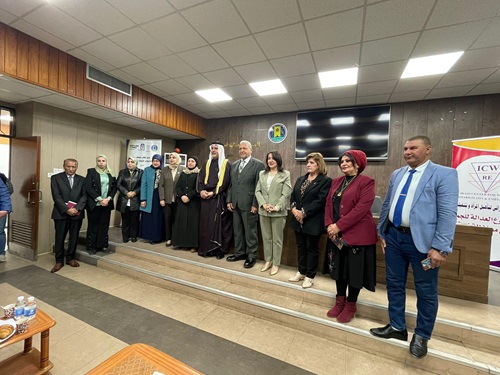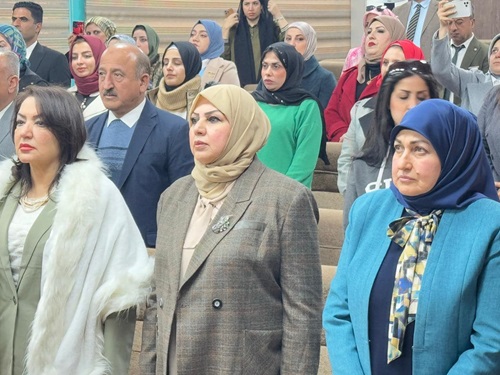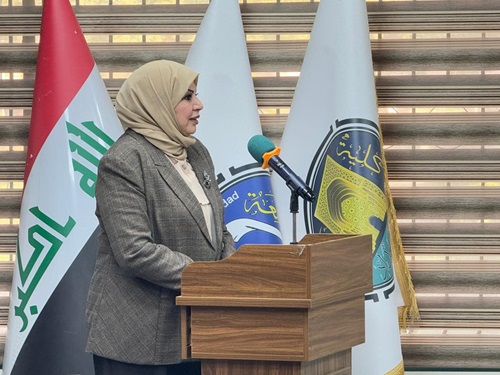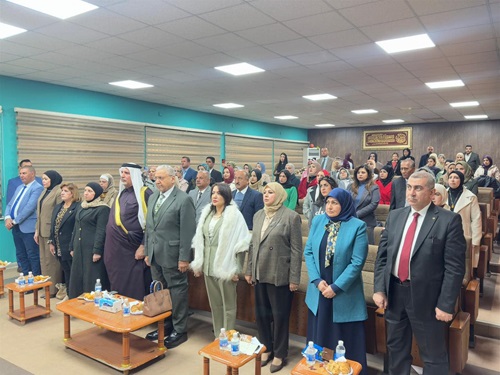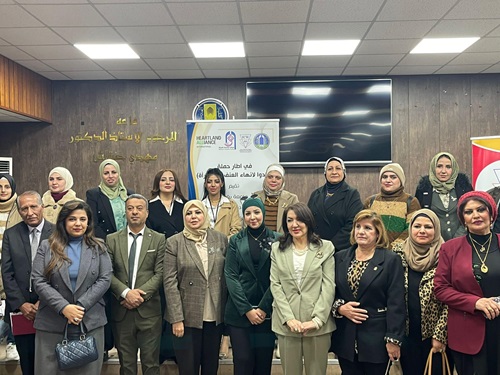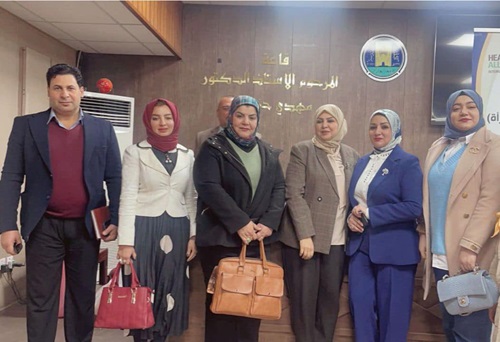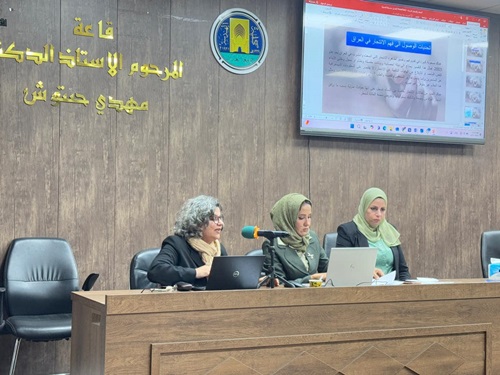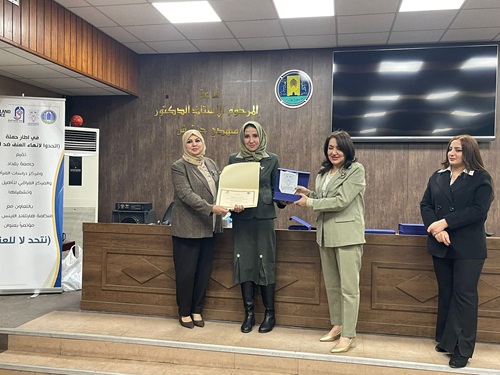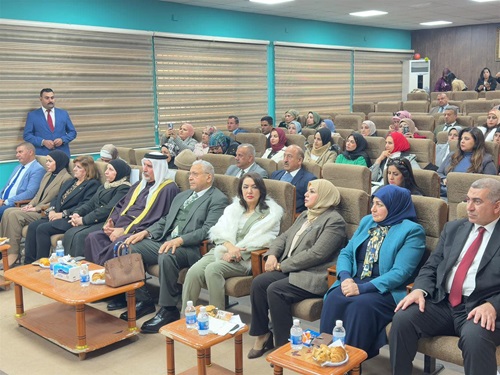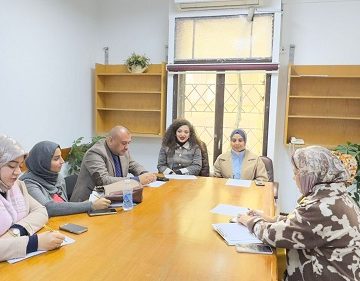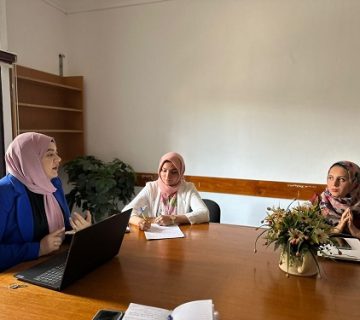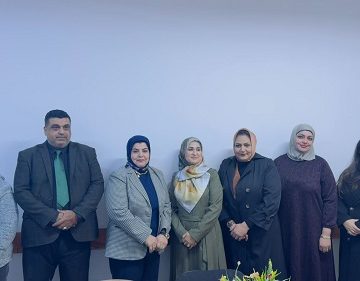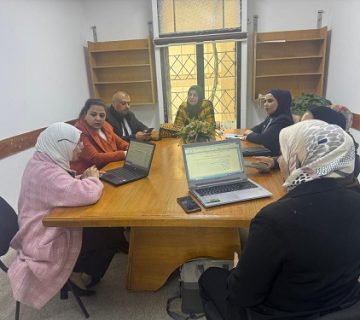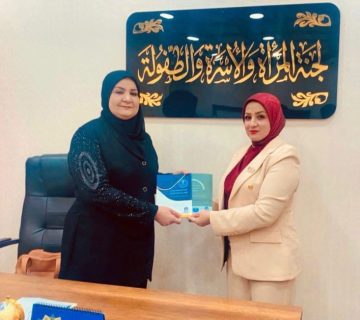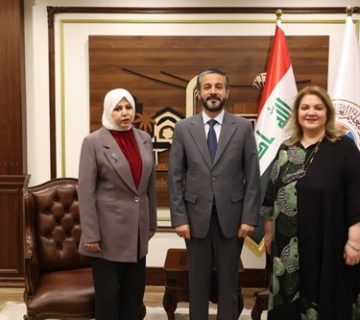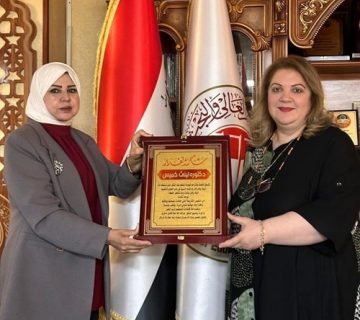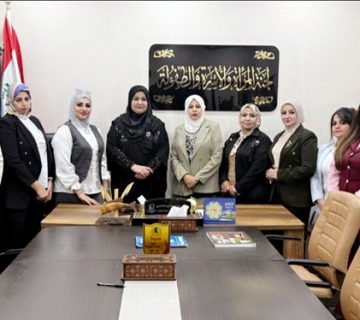In implementation of the National Strategy 2023-2030, Pillar Four: Protection of Woman’s, the Center for Woman’s Studies at the University of Baghdad, in cooperation with the Iraqi Center for Woman’s Rehabilitation and Employment, held a conference titled “United Against Violence” on Tuesday, December 17, 2024, in the Dr. Mahdi Hantoush Hall.
The conference was attended by advisors to the Prime Minister, members of Parliament, a representative of the National Directorate for Iraqi Woman’s at the General Secretariat of the Council of Ministers, a representative of the Presidency / Woman’s Affairs Department, political and academic figures, military leaders, civil society organization officials, and a group of researchers who presented papers on violence, its trends, and relevant legislation.
The conference also featured the launch of the second report of the Social Violence Observatory Indicators Unit for Woman’s in Iraq for 2024. This monitoring project was initiated by the Center for Woman’s Studies in 2021 to document crimes of violence directed at women, relying on data collected from reports issued by governmental institutions.
In her speech, Prof. Dr. Adhraa Ismail emphasized: “Combating violence is an interconnected process involving legal and social systems, political and economic stability, and requires collective thinking to develop a national strategy to activate national and international commitments to protect woman’s.” She stressed the role of state institutions and society in eradicating violence through intellectual awareness.
The conference concluded with several key recommendations, including:
•The need to enhance scientific research on violence against woman’s in all its forms, with a focus on emerging types linked to technological developments, such as digital violence.
•Encouraging students and researchers to understand and analyze the phenomenon of violence in Iraqi society and adopt it as a subject for research, examining it from all scientific perspectives.
•The necessity of economic empowerment for woman’s who are victims of violence and those facing economic and social vulnerability, as well as protecting working women from all forms of violence, discrimination, and exclusion.
